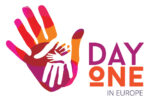Lunch Box
The aim of the Lunch Box is to link food and the acquisition of the host country’s language, and to enrich children’s taste education with an anthropologically based approach. LABA coordinates this segment, while Territoires Alimentaire involves the researcher Yassir Yebba, who together with the Buisson School implements the work: mobilization of children and families, organization of workshops, meals, snacks, writing of the pedagogical project, pedagogical feedback, evaluation and mobilization of the children (testimonies and stories), construction of the pedagogical guide.
objective
The objective of the Lunch Box is to understand the links and relationships between territory and food by working on the landscape.
repatriation
Returning to the primary function of the plate, that of proclaiming hunger, feeding and appeasing.
Food is essential to progress. Food and migration are interconnected, and when we eat well, we live better together. Food is the ultimate social link. All behaviour flows from it. There is nothing more unique than eating. So the way we eat is very important.
Workshops
Workshop #1
Workshop #2
Workshop #3
Workshop #4
Exchange Sessions
Exchange sessions called “from me to the other” will be proposed around taste, sensoriality and the culture of children.
First Phase
Surveys & Questionnaires
Through questionnaires and surveys on the food practices of children in their families, the Lunch Box reveals the practices and customs of each person.
Second Phase
Imagination, Food Supply & Cooking Practice
The second phase focuses and addresses the notions of food processing through practice, and children’s understanding of the ways in which food is cut up and cooked.
Third Phase
understanding
The third exchange focuses on “understanding”: dealing with constraint and rules.


